Faculty

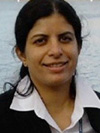
Shailaja Allani, Ph.D.
Shailaja Allani, Ph.D., is a research assistant professor in the Center for Molecular Biology and Biotechnology. Allani has a diverse scientific background with training in plant biotechnology, conservation genetics, and molecular biology. She received a Ph.D. in integrative biology from Florida Atlantic, and earned a prestigious American Cancer Society fellowship during her postdoctoral training. She is involved in the field of oxidative stress and cellular metabolism in cancer and aging. She was awarded a pilot grant from the Nathan Shock Center for Aging for her studies on understanding cellular pathways involved in normal cell protection and killing of cancer cells.
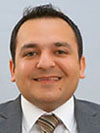
Waseem Asghar, Ph.D.
Waseem Asghar, Ph.D., is an assistant professor in the College of Engineering and Computer Science at Florida Atlantic. His research interests are in the areas of disease diagnostics, microfluidics, and biosensing. He has previously developed microfluidic devices for isolation of circulating tumor cells from blood using antibodies and RNA aptamers that specifically bind with tumor cells. He has also developed platforms to differentiate cancer cells based on their mechanical and viscoelastic properties.
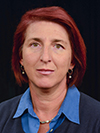
Mare Cudic, Ph.D.
Mare Cudic, Ph.D., is an associate professor in the Department of Chemistry and Biochemistry. Her research interests are primarily in the field of glycosciences, which explore the structures and functions of sugars. The main emphasis of her research is on protein-carbohydrate interactions that play a role in the progression of cancer and metastasis. She is using multidisciplinary approaches at the interface of chemistry and biology to elucidate the precise mechanism by which recognition of tumor associated glycans contributes functionally to breast cancer progression. The findings from her studies may lead to the development of potent inhibitors of metastatic processes and/or immunospecific cancer vaccines.
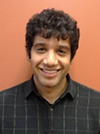
Michael DeGiorgio, Ph.D.
Michael DeGiorgio, Ph.D., is an assistant professor in the College of Engineering and Computer Science. His research interests are in genetics and uncovering footprints of adaptation from ancient and modern genomes. He is currently funded by the National Institute of Health and the National Science Foundation for his work on identifying complex modes of adaptation from population-genomic data and for understanding the deep ancestry of indigenous people of North America.
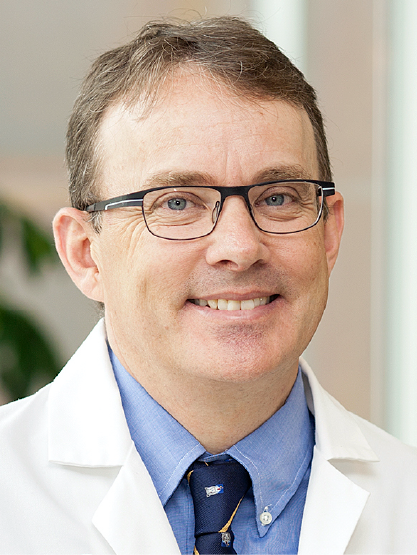
Patrick Grant, Ph.D.
Patrick Grant, Ph.D., is an associate professor in the Charles E. Schmidt College of Medicine. His research interests include using biochemical and genetic approaches towards understanding the control of gene activity and cellular proliferation. His current research projects also involve a study of the epigenetic mechanisms participating in the development of cancer cell resistance to chemotherapeutic treatments.
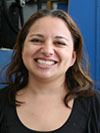
Esther Guzmán, Ph.D.
Esther Guzmán, Ph.D., is an associate research professor at the Harbor Branch Oceanographic Institute (HBOI). She received her Ph.D. in immunology from the University of Texas MD Anderson Cancer Center, Houston, followed by postdoctoral positions at the Henry Ford Hospital and at HBOI. She also leads the Cancer Cell Biology Program at HBOI. Her research focuses on finding marine natural products that have the potential to be novel therapeutics against cancer, novel drugs that target components of the immune system that link inflammation and cancer development, and novel tools to help us further our understanding of the group of more than 100 diseases grouped under the term cancer.

Vijaya Iragavarapu-Charyulu, Ph.D.
Vijaya Iragavarapu-Charyulu, Ph.D., is an associate professor in the Charles E. Schmidt College of Medicine. She has been conducting research on breast cancer for more than 20 years. Her special interest is in understanding the molecules and mechanisms involved in metastasis which is the major cause of death in women with breast cancer. Relative to this goal, she found two molecules (chitinase-3-like-1 and semaphoring 7A) that contribute to metastasis.

Tarsha Jones, Ph.D.
Tarsha Jones, Ph.D., is an assistant professor in the Christine E. Lynn College of Nursing. Her research interests are in cancer prevention and control with an emphasis on breast cancer and improving the uptake of BRCA genetic counseling/testing and cancer risk reduction strategies among high-risk minority women. She is also interested in reducing breast cancer related health disparities among young women diagnosed with early age-onset breast cancer. Jones is currently funded by the National Cancer Institute through a research and career development award that focuses on increasing diversity of trained researchers in the biomedical and behavioral sciences.
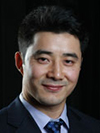
Yunqing (Kevin) Kang, Ph.D.
Yunqing (Kevin) Kang, Ph.D., is an assistant professor and biomedical engineer in the Department of Ocean and Mechanical Engineering. Kang works on developing new functional biomaterials for bone tissue regeneration and esophageal cancer treatment, for which he has been awarded grant funding from Osteo Science Foundation and the National Institutes of Health.

Andy Khamoui, Ph.D.
Andy Khamoui, Ph.D., is an assistant professor in the Department of Exercise Science and Health Promotion. Khamoui has broad background and interests in exercise physiology, skeletal muscle plasticity, and mitochondrial function in health and disease. His current research projects address mechanisms linking mitochondrial health to cancer cachexia, a life-threatening paraneoplastic condition characterized by unintended weight loss and skeletal muscle dysfunction.
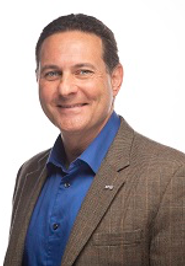
Salvatore Lepore, Ph.D.
Salvatore Lepore, Ph.D., is a professor in the Department of Chemistry and Biochemistry from the Charles E. Schmidt College of Science. He spent 19 years directing research on the development of new organic reactions with a view to their application to human health. His earlier projects involve the total synthesis of a multidrug reversal agent and the search for a safe and orally available blood-clot inhibitors.
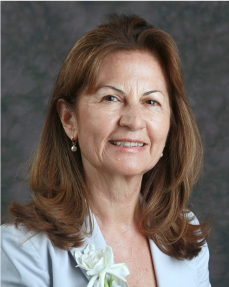
Theodora Leventouri, Ph.D.
Theodora Leventouri, Ph.D., is a professor of physics in the Department of Physics at the Charles E. Schmidt College of Science. Her research interests cover structure and physical properties of crystalline matter, radiation therapy physics, clinical and computational medical physics. Her experimental methods of study include X-ray and neutron diffraction, electron microscopy and magnetometry. She is elected Fellow of the American Physical Society (APS) for advancing physics in medicine by developing and garnering national accreditation for two graduate medical physics programs at Florida Atlantic, and for pioneering studies on structure properties of high temperature superconductors and apatite based biomaterials.
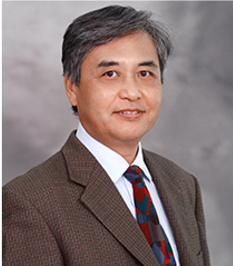
Zhongwei Li, Ph.D.
Zhongwei Li, Ph.D., is a professor in the Department of Biomedical Science from the Charles E. Schmidt College of Medicine. His research program focuses on Ribonucleic acid (RNA) biology, a single-stranded chain of cells that processes protein. His work identifies genes and proteins that reduce oxidation levels in E. coli and human cells, demonstrating that RNA degradation can be a major mechanism for eliminating oxidized RNA and protecting cells under oxidative stress. His current project involves studying the changes in gene expression and microRNA levels as potential biomarkers for cancer and Alzheimer disease.

Oge Marques, Ph.D.
Oge Marques, Ph.D, is a professor of engineering and computer science at Florida Atlantic. He has more than 30 years of teaching and research experience in different countries, including Brazil, India, Spain, Austria and France. His research interests are in the field of intelligent processing of visual information, an interdisciplinary combination of image processing, computer vision, human vision science, image retrieval, artificial intelligence, machine learning and human computation, with emphasis on medical applications. He is interested in helping developing solutions for cancer diagnosis and prevention using the latest development in machine learning, data science and image analysis.
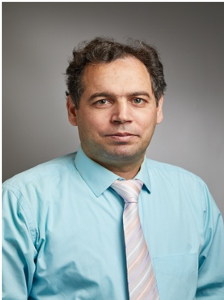
Wazir Muhammad, Ph.D.
Wazir Muhammad, Ph.D., is an assistant professor of medical physics in the Department of Physics at the Charles E. Schmidt College of Science. His research interests are on different modes and techniques of radiation therapy, radiation transport, image-guided radiation therapy (IGRT), machine learning and artificial intelligence (AI) in radiation oncology and cancer risk estimation through AI. Previously, he developed an early warning system by actively tracking all organ dose data for individual patients in order to improve patient safety in radiation therapy and a multi-parameterized artificial neural network based on easily available personal health data by the National Health Interview Survey (NHIS) to predict cancer risk prior to symptom onset.
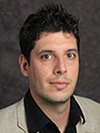
Stephane Roche, Ph.D.
Stephane Roche, Ph.D., is an assistant professor in the Department of Chemistry and Biochemistry. His research program focuses on establishing new methodologies using organocatalysis, which will be directly applied in the total synthesis of complex targets. The total synthesis campaigns are gravitating around the development of innovative methodologies on chirality and peptide chemistry as tools for the preparation of complex non-proteinogenic amino acids, peptides, and alkaloids.

Andrew Terentis, Ph.D.
Andrew Terentis, Ph.D., is an associate professor in the Department of Chemistry and Biochemistry. He is a physical chemist with a general interest in the use of optical spectroscopic techniques, particularly Raman spectroscopy (RS), to characterize the structure of biomolecules, living cells, and tissue. His laboratory has made original contributions to the development of RS as a method for detecting and characterizing non-melanoma skin cancers, and the use of RS to visualize cell-penetrating peptides in live melanoma cells. His laboratory also conducts research on cancer-related enzymes such as indoleamine 2,3-dioxygenase (IDO).
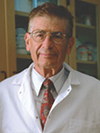
Herbert Weissbach
Herbert Weissbach is an emeritus research professor in the Department of Chemistry and Biochemistry. A major research interest of his laboratory has been in the role of oxidative damage in aging and age-related diseases, and more specifically the mechanisms that cells use to protect against oxidative damage. Recent work has focused on sulindac, a known NSAID, in protecting cells against oxidative damage. The Msr system reduces sulindac, a prodrug, to sulindac sulfide, an active COX inhibitor. However, sulindac has novel properties unrelated to its NSAID activity. It can initiate a protective preconditioning mechanism in normal cells similar to that observed in ischemic preconditioning. Of interest is the finding that cancer cells, unlike normal cells, are more sensitive to oxidative damage after treatment with sulindac.
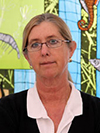
Amy Wright, Ph.D.
Amy Wright, Ph.D., is the director for the Center of Excellence in Biomedical and Marine Biotechnology and leads the Natural Products Chemistry Group at Harbor Branch Oceanographic Institute. She has spent 35 years conducting research in the field of natural products chemistry. The primary focus of her research has been the discovery of natural products useful in the development of novel therapeutic agents for the treatment of cancer and infectious disease.
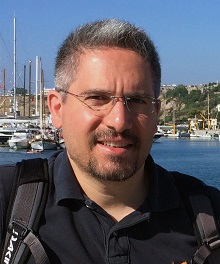
Ilyas Yildirim, Ph.D.
Ilyas Yildirim, Ph.D., is an assistant in the Department of Chemistry and Biochemistry in the Charles E. Schmidt College of Science. He is a theoretical and computational biophysicist specializing in RNA chemistry. His laboratory creates and optimizes RNA force fields to better represent challenging RNA systems in molecular mechanics calculations, develops physics-based methods and models to investigate RNA folding, and designs novel computational methods called 'Dynamic Docking' to study small molecule/RNA binding. The ultimate aim of his laboratory is to develop computational tools to utilize RNA as drug targets to provide novel pharmacotherapies to RNA-based diseased. His research program is strongly interdisciplinary at the interface of chemistry, physics, and biology, where he actively collaborates with experimental groups.
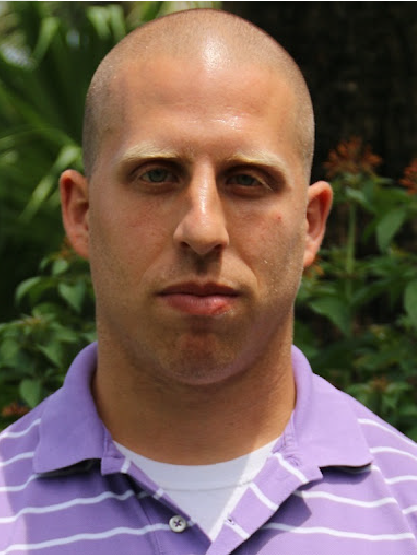
Michael C. Zourdos, Ph.D.
Michael C. Zourdos, Ph.D., is the Associate Chair, an Associate Professor, and director of the Muscle Physiology Research Laboratory in the Department of Exercise Science and Health Promotion. His laboratory has 3 current focuses, which use resistance training to improve health and performance: 1) To assess the effects of novel resistance training protocols on muscle adaptations in young individuals, 2) To examine the ability of resistance training to leverage both acute and chronic responses of neuroprotective biomarkers, and 3) To investigate the degree to which autoregulated resistance training can improve health-related quality of life, cancer-related biomarkers, and various clinically relevant outcomes in cancer patients undergoing curative care treatments.